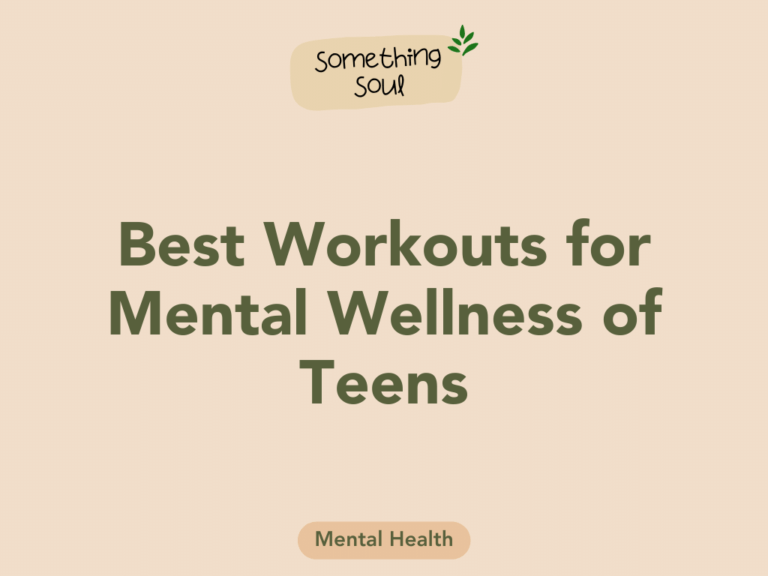Introduction
Life can be a roller coaster ride, full of ups and downs, twists and turns. Sometimes, it’s difficult to navigate through all the chaos and truly understand how we’re feeling. If you’ve been questioning your mental well-being lately, you’re not alone. It’s important to assess and prioritize your mental health to ensure you’re taking care of yourself. In this article, we’ll explore some common signs to look out for and provide you with helpful tips to prioritize your mental well-being.

Are You Feeling Like Something’s Off Lately?
Have you been experiencing a lingering feeling that something just isn’t right? Trust your instincts, because chances are, they’re telling you something important because our intuition often serves as an early warning system, and it’s essential to pay attention to it. If you’ve been feeling off, it may be time to dig deeper and assess your mental well-being.
Here are ten signs that can serve as red flags and indicate that something might be amiss:
1. Change in appetite or weight:
Have you noticed a significant change in your appetite or weight recently? This can be a sign that your mental well-being is being affected. So, It’s important to listen to your body and reach out for support if this becomes a consistent issue.
2. Fatigue and low energy:
If you’re feeling constantly exhausted, even after a good night’s sleep, it could be a sign that your mental health needs attention. Fatigue and low energy levels are often indicators of underlying emotional stress.
3. Difficulty concentrating and making decisions:
Are simple tasks suddenly becoming challenging? Difficulty concentrating and making decisions can signify that your mental well-being isn’t at its best. It’s crucial to address this and seek help if needed to regain your focus.
4. Heightened mood swings:
Have you noticed that your mood seems to be fluctuating more than usual? Frequent mood swings, from extreme highs to extreme lows, can be an indication that you need to take a step back and evaluate your mental well-being.
5. Thoughts of worthlessness or hopelessness:
If negative thoughts, feelings of worthlessness, or hopelessness dominate your mind, then it’s crucial to address them because these thoughts can be signs of depression or other mental health conditions, and seeking support is essential.
6. Withdrawal from social activities:
Do you find yourself avoiding social activities or isolating yourself from loved ones? Social withdrawal can be a telltale sign that your mental well-being is suffering. It’s important to reach out to your support network and engage in activities that bring you joy.
7. Loss of interest in things you once enjoyed:
If activities that used to bring you joy no longer hold any appeal, then it may be an indicator of declining mental health because losing interest in previously enjoyed hobbies or passions is a signal to prioritize your mental well-being.
8. Increased anxiety or restlessness:
Are you feeling more anxious or restless than usual? Heightened levels of anxiety can be a sign that your mental health needs attention. It’s essential to explore coping mechanisms or seek professional help to manage anxiety effectively.
9. Trouble sleeping or changes in sleep patterns:
Are you having difficulty falling asleep, staying asleep, or experiencing unusual changes in your sleep patterns? Sleep disturbances are often linked to mental health issues. Addressing these issues is crucial for your overall well-being.
10. Physical symptoms without medical explanation:
If you’re experiencing physical symptoms that cannot be explained by any medical condition, then it’s important to consider the impact of your mental well-being. Our mental and physical health are interconnected, and seeking support is essential to address any underlying issues.
Recognizing the Red Flags
It’s important to understand that we all have bad days or moments in life. However, when those moments start to stretch into longer periods, it’s essential to recognize the warning signs and take action. Here are some key indicators that it’s more than just a bad day:
– Consistency:
If you’re experiencing the signs mentioned earlier consistently and they’re impacting your daily life, it’s time to take them seriously. Consistency is an important factor in determining whether it’s more than just a passing phase.
– Duration:
If the signs persist for an extended period, such as weeks or months, then it’s important to acknowledge that it might be more than temporary stress because recognizing the duration can help guide you in seeking the necessary support.
– Interference with daily activities:
When your mental well-being starts to affect your daily activities, such as work, school, relationships, or self-care, it’s a clear indication that it’s more than just a bad day, then acknowledging this interference is crucial in taking care of your mental health.
10 Simple Steps to Prioritize Your Mental Health
Prioritizing your mental health is essential to lead a fulfilling and balanced life. Here are ten simple steps you can take to nurture your mind and well-being:
1. Practice self-care:
Take time for yourself and engage in activities that make you feel good. Whether it’s reading a book, taking a bath, or going for a walk, self-care is crucial for your mental well-being.
2. Reach out to a trusted friend or family member:
Talking to someone you trust can provide support and a listening ear. So, Share your feelings and thoughts with someone who can offer guidance and understanding.
3. Seek professional help:
If you’re experiencing persistent signs and struggling to manage them on your own, reach out to a mental health professional. They can provide guidance, therapies, and treatments tailored to your specific needs.
4. Prioritize sleep:
A good night’s sleep plays a crucial role in supporting your mental health. Establish a bedtime routine, create a sleep-friendly environment, and ensure you’re getting enough rest each night.
5. Stay physically active:
Engaging in regular physical activity, such as exercise or yoga, releases endorphins and promotes overall well-being. Find activities you enjoy and make them a part of your routine.
6. Practice mindfulness and meditation:
Take a few moments each day to practice mindfulness or meditation. These practices can help reduce stress, increase self-awareness, and improve your overall mental well-being.
7. Limit screen time:
Constant exposure to screens can contribute to feelings of anxiety and overwhelm. Set boundaries for screen time and allow yourself to disconnect from technology regularly.
8. Eat a balanced diet:
Your diet plays an essential role in your mental well-being. Incorporate nutritious foods that support brain health, such as fruits, vegetables, whole grains, and omega-3 fatty acids.
9. Establish a routine:
Creating a structured routine can bring stability and a sense of control to your life. Prioritize your time and ensure you’re allocating it in a way that supports your mental well-being.
10. Practice gratitude:
Taking time each day to reflect on the things you’re grateful for can shift your perspective and improve your overall mental state. Count your blessings and appreciate the positive aspects of your life.
Remember, prioritizing your mental well-being is not selfish but necessary for your overall health and happiness. Take these steps, reach out for support when needed, and remember that you’re not alone on this journey.
Your mental health matters, and by recognizing the warning signs and taking action, you can ensure a brighter and more balanced future ahead.



